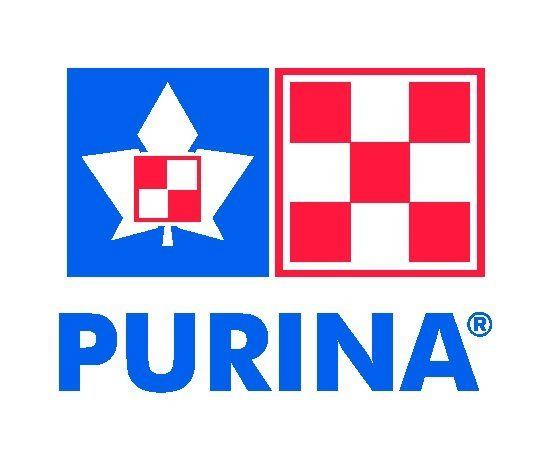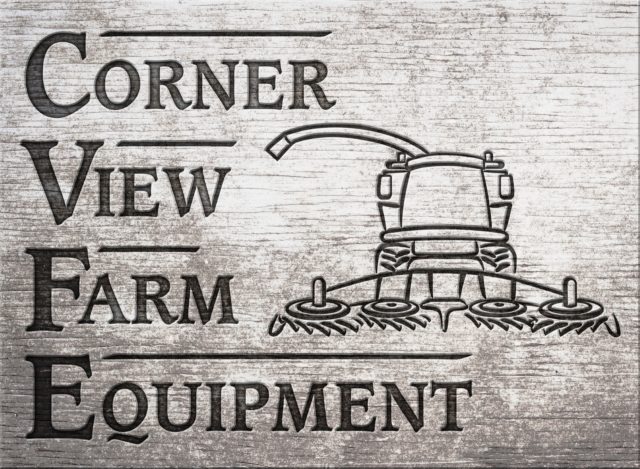Dairy farmers now have an option to purchase consistently high-quality hay that provides 23.3 percent crude protein and virtually no waste because of the way it's processed.
Dubbed "Godiva Hay" by a reporter, the alfalfa produced by Top Quality Hay Processors (TQHP) in Geneva, NY, is taken from the field as it's cut and dried and baled inside a processing plant. The result is alfalfa that is so fresh and retains so much of its leaves that observers sometimes believe it's still wet.
"We had someone ask who was so foolish to bale wet alfalfa," Jeff Warren, brainchild of the new forage product, says. "It's difficult to describe the appearance and smell of the hay once it's baled. It's not like anything you've seen before
Warren had no knowledge of or interest in alfalfa until he started searching for high-quality hay for his daughter's horse. Through a course of events, he decided to try his own hand at growing and processing alfalfa.
"I soon learned that it only rains when you cut hay," Warren says. "I realized that it wasn't possible to consistently produce quality hay unless you eliminated the weather aspect. That's when I started working with some partners to develop a different method for processing hay."
Warren and his partners began with the cutting process and worked with manufacturers to produce a swather that loads alfalfa into a dump trailer rather than piling it on the ground. The hay is transported to a plant where giant ovens dry it so it can be baled inside.
"We had to come up with a way to detangle the hay and what we use works like a giant comb so the hay lies uniformly on the conveyor that takes it through the oven. Because there's no spoilage from rain or any kind of damp weather, there's no dust and no mold involved in this process.
TQHP has organized a franchise system to allow investors across the United States to develop their own processing plants in communities around the country. Warren says the plants need to be close to alfalfa fields in order to obtain fresh forage.
"When alfalfa is cut like this, it can't sit in a truck for hours before it's processed," Warren says. "The alfalfa fields should be within about 30 miles of the plant. That means a large number of communities will benefit from having a plant because it will keep the revenue it generates in that community. We've also seen this new process cause farmers in our community to work together more closely. It's a real benefit to alfalfa producers because they don't have to lose such a large percentage of their crop. Farmers here can lose as much as 50 percent of the hay they cut because of rain. That's just one of the benefits of this process."
Researchers are studying the possibility that alfalfa producers will be able to begin cutting hay earlier in spring and cut later into the fall because TQHP's process removes the weather factor in terms of baling the hay. It's possible the life of an alfalfa field could be extended and compaction in fields is also less of a concern because the only work done in the field will be harvesting.
"You don't need a rake or tedder and you don't bale the hay in the field, so there's a lot less driving in the field with this process," Warren says.
Cornell University ag economic development specialist, Jim Ochterski, has been involved in independent testing of the hay to verify its quality. He says the visual appearance and smell of the hay usually grabs attention because it's so unique and it's difficult to explain the quality of the hay without having a sample of it to demonstrate how different it is.
"This is rocket fuel," Ochterski says. "It has a beautiful odor and is very dark green and leafy. Typically buyers use their sense of smell and feel to evaluate hay. These bales defy description. There's not much more you can say about it, it's just very high-quality hay and has everything a cow's rumen can really use."
TQHP is offering top quality dairy hay (TQD) which has consistent low moisture levels, high levels of protein and fiber, consistency in flakes, superb color and is mold- and dust-free. They guarantee that use of the forage will "increase milk yields and protein intake directly. Use of TQD in the diet of youngstock is guaranteed to enhance growth and strength during the formative years."
"Based on the testing we've done, livestock should eat this like it's candy," Ochterski says. "Because it's such high quality, it's possible that dairy producers could reduce the amount of forage and some other feed additives they're using."
The cost of TQHP's product will depend on a variety of elements, including current hay market prices. While the increased quality will add to the price, a number of factors also make it an attractive economical feed source.
"Animals are going to eat every bit of these bales," Ochterski says. "It's not uncommon to waste about 30 percent of a bale because it is moldy or spoiled. The costs and labor are going to be quite different than conventional haymaking and feeding. Producers will have to consider how it fits into the finances of their operation."
Warren is pleased that he's been instrumental in developing a process to improve the quality of alfalfa and Timothy hay. He no longer owns any alfalfa fields or haying equipment. He used that experience to help him better understand traditional haying methods. Now he's anxious to see alfalfa producers and end users such as dairies benefit from the work that has taken him on a journey over several years.
"I never really understood or appreciated farming until I became involved in this endeavor," Warren says. "It's a wonderful way of life but its also very hard work. Alfalfa producers don't have crop insurance to cover their losses, which is an added disadvantage for them. It's my hope that this process will help farmers consistently produce quality hay in a way that makes their work a little easier. It will also make it easier for livestock owners to find the quality forage they need for their animals."
Additional information about TQHP is available at www.tqhp.com PD
Loretta Sorensen for Progressive Forage Grower





